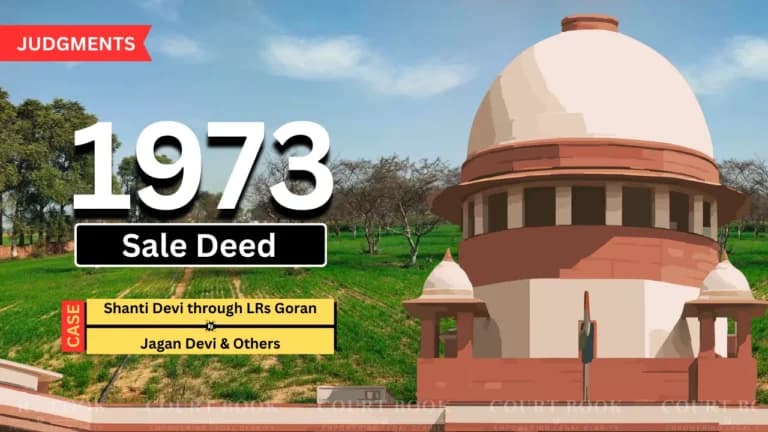New Delhi, September 12 – The Supreme Court on Thursday dismissed an appeal by the heirs of Shanti Devi, bringing finality to a four–decade dispute over farmland in Haryana’s Nuh district. The bench of Justice J.B. Pardiwala and Justice R. Mahadevan ruled that a 1973 sale deed, which allegedly transferred one-third of the agricultural land to Shanti Devi, was never proven genuine. “Evidence brought on record by the plaintiffs un-clinchingly proved that Rasali had never executed the disputed sale deed,” the court observed.
Background
The quarrel began in 1984 when Rasali, co-owner of 31 kanals and 4 marlas of farmland in Bisar Akbarpur village, filed a civil suit claiming she never sold her share to Shanti Devi. Rasali alleged that her signature was forged and that no sale money was paid. Shanti Devi countered that she had purchased the land for ₹15,000 and produced a registered deed.
The trial court dismissed Rasali’s suit, calling it time-barred. But the first appellate court reversed that decision, holding the deed void and granting Rasali joint possession. The Punjab & Haryana High Court later upheld that ruling, leading Shanti Devi’s legal heirs to approach the Supreme Court.
Court’s Observations
The apex bench closely examined whether the case was barred by limitation—meaning filed too late. The defence argued that Rasali should have sued within three years of the 1973 transaction. But the court pointed to Article 65 of the Limitation Act, which allows 12 years for recovery of immovable property when possession is adverse.
Key to the judgment was the finding that the sale deed was void from the start. The court noted that thumb impressions on the deed did not match Rasali’s and that crucial witnesses, including Shanti Devi’s husband who allegedly paid the balance amount, never testified.
Read also: Supreme Court Orders Coal India to Refund 20% Excess Charges Collected Under 2006 Interim Coal
“When a document is void ab initio, a decree for setting aside the same would not be necessary as the same is non-est in the eye of the law,” the bench remarked.
Decision
Affirming the High Court’s conclusion, the Supreme Court ruled that Rasali’s 1984 suit was within the 12-year limit and that the sale deed carried no legal weight. “The suit could indeed have been maintained to obtain possession of the property within the period of 12 years from the date of execution of the sale deed,” the judgment stated.
The appeal by Shanti Devi’s heirs was therefore dismissed, securing Rasali’s legal right to her one-third share of the Gurgaon farmland.
Case: Shanti Devi (Since Deceased) through LRs Goran vs. Jagan Devi & Others
Appeal No.: Civil Appeal No. 11795 of 2025 (@ SLP (C) No. 24821 of 2018)
Date of Judgment: 12 September 2025














